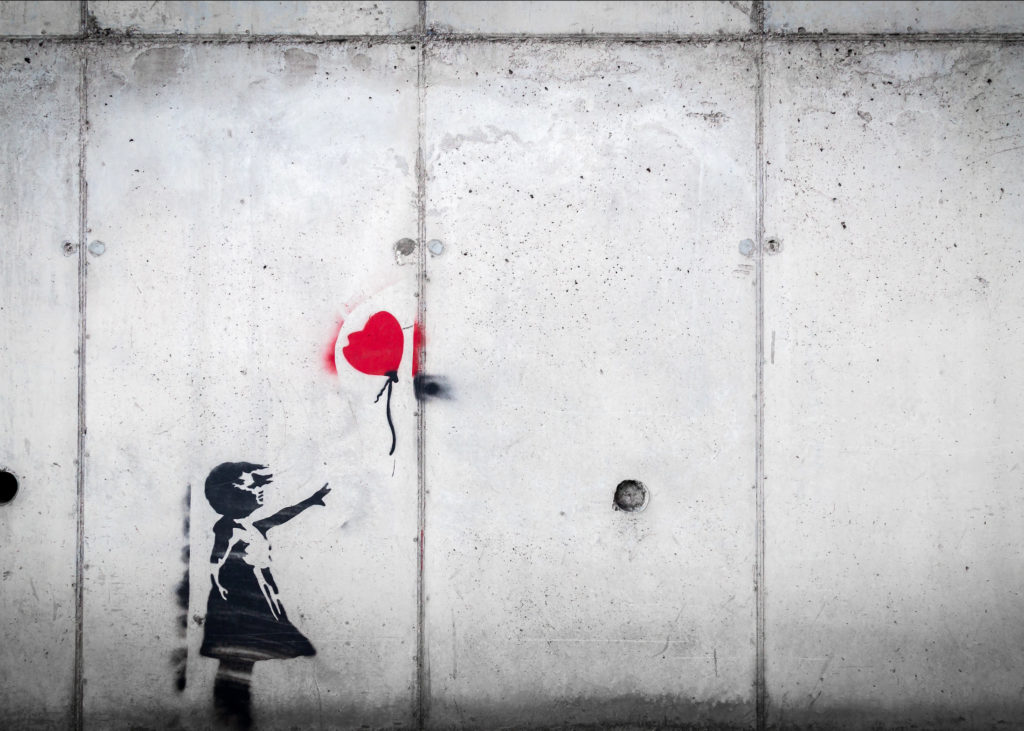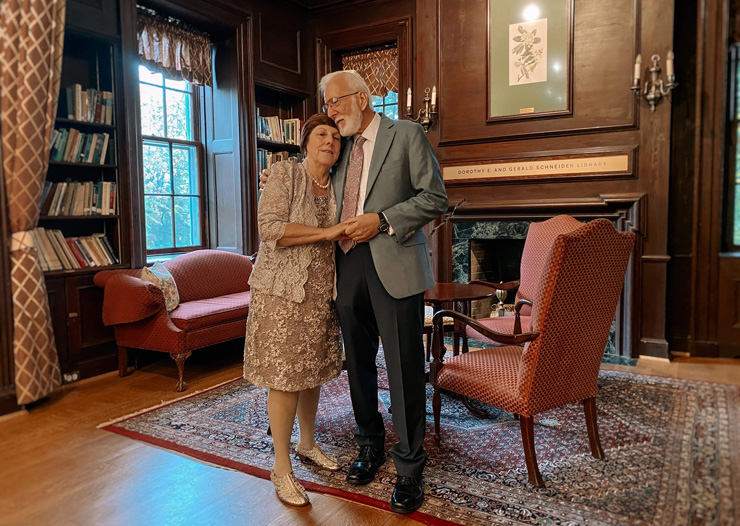Estimated reading time: 7 minutes
When my wife passed away at 65, I couldn’t imagine life without her. How was I supposed to live? My happiness was gone…
—
How do we survive loss? I had never been tested in this regard, and then I found myself in the middle of more than I could ever imagined. I wasn’t sure how to find my way through it all, or if I would be able to.
Within the space of a few months, both of my parents passed away. I felt their absence deeply, but I wasn’t devastated. As hard as it is, I realized that it is the way of the world to lose one’s parents. Then on the day I returned from my mother’s funeral, my wife collapsed on the floor next to me. And that was it.
When my Bonnie passed away, we were both 65 years old, and I couldn’t imagine life without her. We had been happily married for 44 years when she died.
What was I supposed to do? How was I supposed to live? My happiness was gone, stripped away from me in an instant.
I felt a lot of guilt. It was my fault. Her health had been declining for some time, and she had been to the hospital before. Why hadn’t I been able to talk her into going to the hospital that day? I told her she should, but she refused. And I backed down. Why hadn’t I done more? I found myself pacing up and down the hallway, feeling things I had never felt before and unable to think clearly. I had trouble looking at myself in the mirror.
I had always prided myself on being the kind of person who could handle things. I was tough. But for the first time in my life, I found myself entirely lost. I knew my wife had passed away, but I couldn’t bring myself to take things off her desk. I kept her clothes in the closet and her purse nearby. I knew that this didn’t make any sense, but I did it anyway. I checked her email every day, telling myself that I was just being responsible, but I knew that didn’t explain it.
Though feeling lost, I was grateful that my religion brought me the collected wisdom of previous generations of so many who had to find a way of dealing with the pain. Jews are guided through the process. A week of intense mourning, and then a month more of formal mourning. After a year, I was prompted by Jewish teachings to go back out into the world. This was a very positive step, but I was still not whole. I no longer felt guilty, but I didn’t really feel anything.
Days passed, and things didn’t get any better. I took comfort in routine. I exercised every morning. I ate moderately, and I drank only rarely. I found that I was losing weight (which was a good thing), so I began to focus on that. I weighed myself every day, and I kept a log. The weight fell off, but it brought me no pleasure. I wasn’t heading anywhere.
I decided to move to be near my daughters. Luckily, they were both very supportive. They helped me through this difficult time. In spite of their help, I was still shrouded by something that wasn’t quite depression, but it was close. I was just stumbling along, very grateful to have family I could count on, but not quite sure what to do with myself. Things that had defined me in the past were impossible for me. I couldn’t read, so I watched TV constantly. And even though I was a published author, I found that I couldn’t write. I was emotionally and intellectually stuck.
I began to settle in to the idea that all of my happiness was in the past. I was, after all, not young any more. How much happiness could one person hope for in a life?
I began to think that I should settle in with these feelings and this attitude. I had accomplished a great deal professionally and personally. Perhaps this was just over for me.
But I continued and deepened my practice of meditation, something that I had learned many years ago and taught as a martial arts instructor. So I found strength in my religion, my family, and the power of meditation. All of these forces combined to pull me out of myself and my misery.
And then I woke up one morning and decided that I wouldn’t cave to my sadness.
I had gone through a personal loss, but many people have suffered much more than me. How dare I wallow in self-pity? I decided to tell myself that happiness was possible. I decided that I would wake up every morning and say, “This could be the best day of your life.” I worried that I had become a bumper sticker, but somehow it was meaningful. And soon I found myself taking more pleasure in walking by the lake or in having a casual conversation with a neighbor. I wasn’t happy, but I wasn’t miserable. And that was progress.
One of my daughters spoke to me one day, saying that she thought I should try online dating. I had always been against it. That simply wasn’t the way people met, or so I thought. I was very skeptical, but I took my daughter’s advice and went to an online dating service. It felt very odd. I had to write a profile, and I didn’t know what to say. I didn’t like talking about myself, and I didn’t think that I had much to offer anyone. I sat down at my computer and began to write the profile. I knew that I had to open myself up to people I had not met, and this was uncomfortable for me. But I decided to give it a try. I just told myself that I was who I am and that if that wasn’t enough, then I could live with that.
The rest was magic. I met an amazing person my first day online. She was also widowed and struggling with her life. We felt connected from the first moment. She and I were stunned to discover that we shared not only our religion; we found that we had exactly the same personality profile. We also learned that we shared fundamental ideas about ethics, nature, politics, ideas of beauty, family, and community. And it turned out that we both had a need for order and neatness. Not everyone needs these things, but there we were! Plus, we both had a dangerous sense of humor.
We spent hours on the phone every day, and one morning I woke up and realized that I wasn’t sad anymore. We moved from talking on the phone to seeing one another, and we realized that the feelings we shared were truly deep and strong. We felt it before we said it out loud… We were in love.
This wasn’t supposed to happen. I wondered if I was betraying my late wife by having these feelings, even though it was three years since she had passed. Should I feel guilty again? Should I deny these feelings?
then I realized that life is for living.
We all go through hard things — some people go through much more than others, but I don’t see any way to compare the pain of one person with that of another.
I proposed to Michelle, and we were married a couple of months later. Some of our friends thought we were moving too quickly, but that didn’t bother me. I knew that we were doing what was right for us. And I have learned something. We should never turn away from the chance for happiness. We should never put walls around ourselves and tell ourselves that it is too late to try again. So at 69 years old, we were married, and life is once again filled with joy.
None of us knows how much time we have on this earth. It is a mystery. So I have a very simple message: Embrace sadness, but don’t hold it forever. Don’t turn away from opportunities. Don’t hide from happiness. Live every day to the fullest. And for those of you who believe you are old — this applies to you as well. You won’t find happiness again unless you seek it. I have found happiness again, and you can too.
You may also enjoy reading Life After Death: Healing Grief, Redefined by Sarah Nannen

